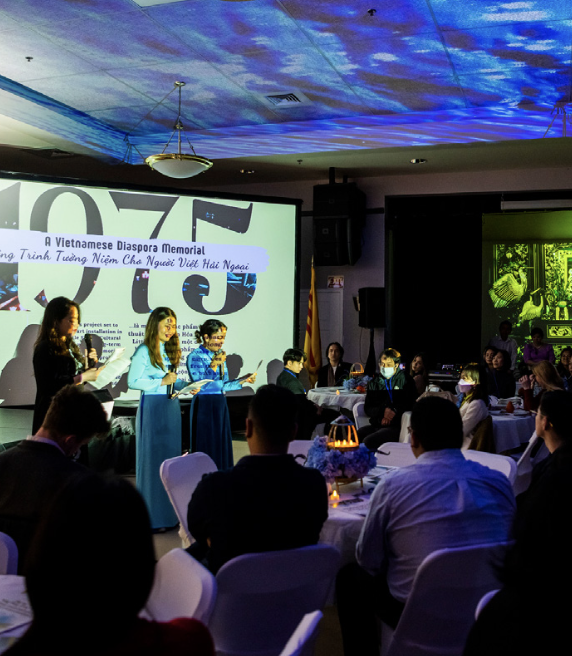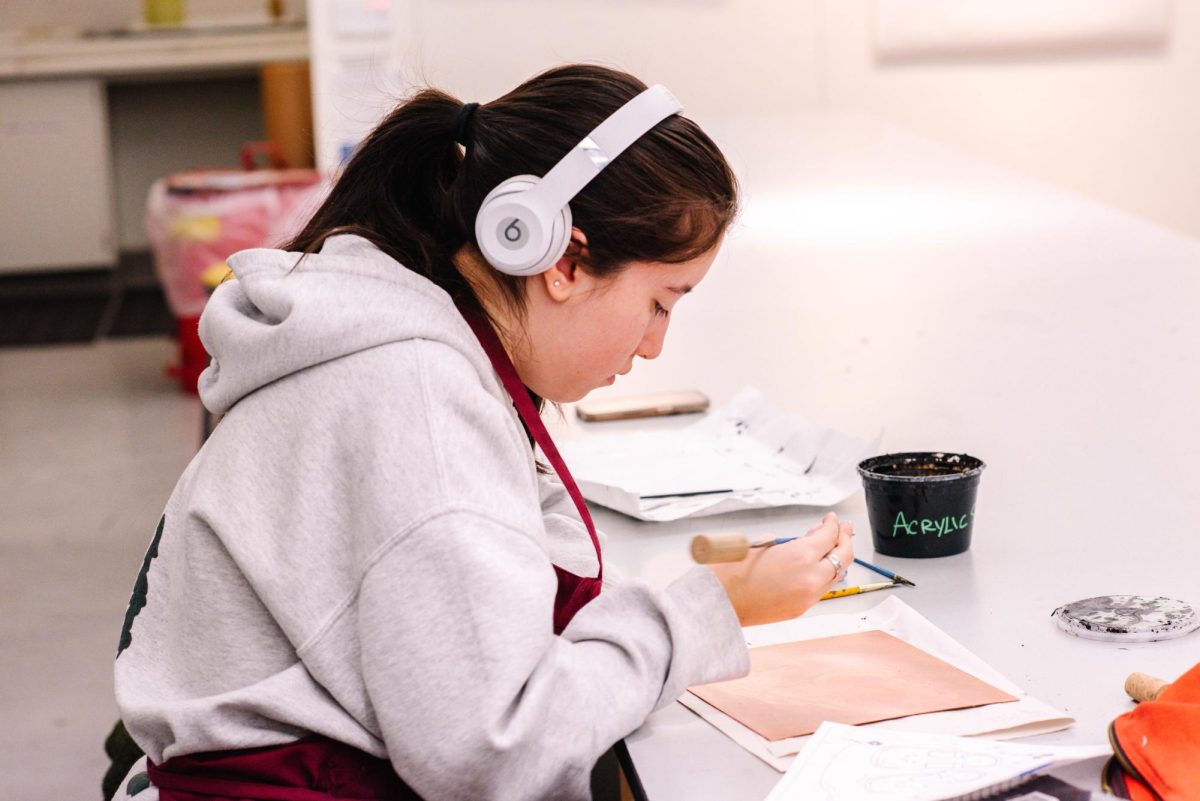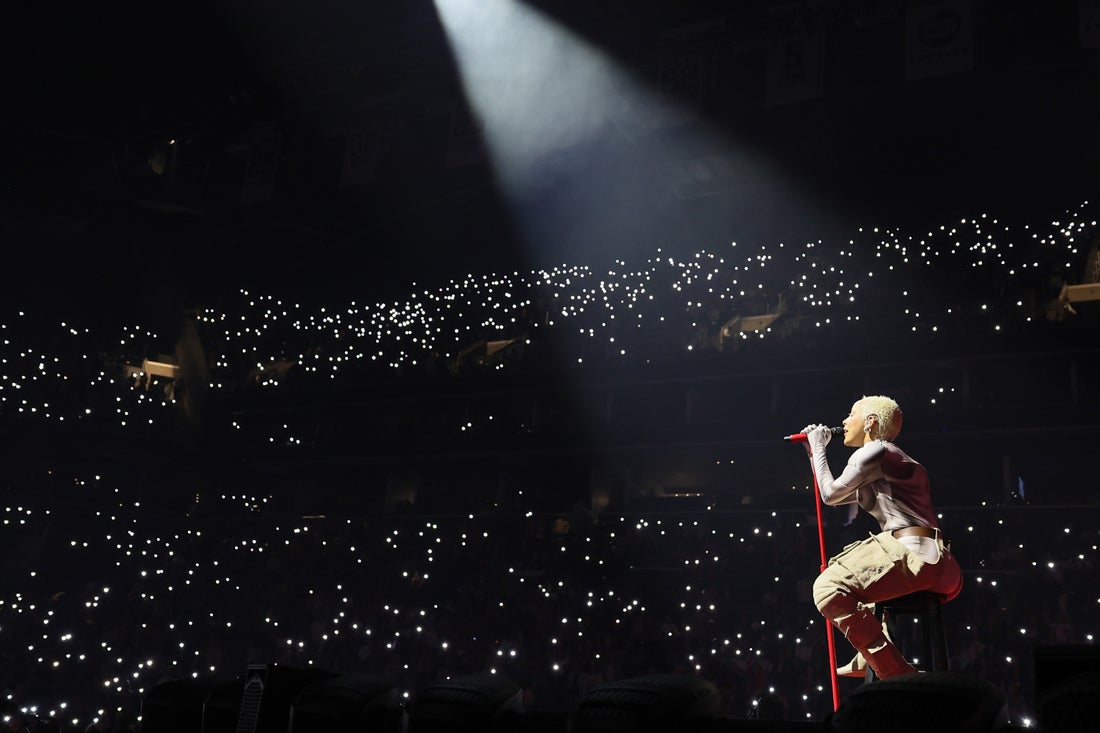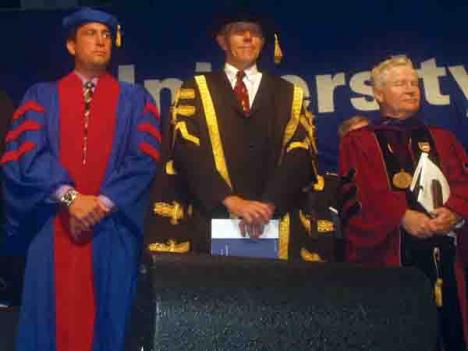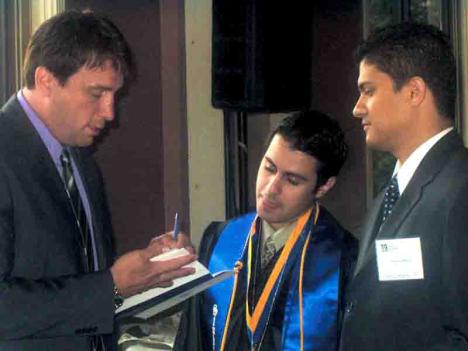Publishing for Peanuts
March 28, 2003
Each year, there are a few events I always look forward to: receiving my tax refunds both state and federal, Christmas, and Beantown Zinetown (BTZT). For those of you not familiar with the latter event, BTZT is a chance to explore the wonderful world of independent publishing. Already in its sixth year, this event has steadily expanded from a few ‘zines and tables to an explosion of literature and causes from all walks of life.
Offering vegetarian cuisine and information on groups such as the Church of Euthanasia or Bikes Not Bombs, BTZT starter and spoken word guru Rev. Rich Mackin states that “…the problem is not having too many anything, but not having enough people of other groups. Spread the word, this event is not just for zinesters to network with each other, but for non-zinesters to learn our strange and magnificent ways. And remember it is best to lead by example. If you are a trans-gendered, cheese-making accordion player, you can either do a ‘zine about that or complain that no other ‘zine addresses you.”
The term “‘zine” originates from the word “fanzine,” often put out by fans of a particular cause, band, genre, or interest. ‘Zines are versatile bits of work that can be simple free works of black and white held together by staples and spit or elaborate full-color projects that go for $5 and up. A good rule of thumb is to remember to bring a fistfull of dollar bills and, of course, your own ‘zines to trade. The effort that goes into them varies and, generally some are more worried about being content-oriented than attractive. What I enjoy most of all is the lack of ads. They may not smell the same or have as many glossy photos as say, magazines like Glamour or Elle, but that is because they prefer to be free from influence and, in so doing, remain small labors of love.
Some ‘zines exist as an outlet for art and creative comics such as one of my favorites, Ten Foot Rule, a sort of Daria meets Mad Magazine for the little guy created by Shawn Granton. Others, like Button, serve as voices for talented and, as yet, unknown writers of short stories, poetry, and essays. Still, there are an even larger number that provide a window into the minds of those bold enough to write from a more personal point of view. Besides offering chances for the unpublished aspiring author who has yet to make his or her debut, BTZT also gives free workshops in independent publishing, comics, ‘zine-making, and more.
Unlike Boston, most cities do offer forums for the independent media and publishing community. Each year there are a few local events, but none within the past five years that have ever brought together the community in the way that Beantown Zinetown does. For the most part, the underground literary community has remained sparse and splintered. There is one other event I know of that remotely resembles this, except La Fete du Sisk does not offer it on the same grand scale.
Though there have been experiments with moving the location, it has traditionally been held in the gym at Mass College of Art. This year, there will be a pre-party reading and ‘zine workshop at Brandeis, in Waltham, Friday, March 28 and another Saturday, March 29 at 7pm. The workshops run from noon-9pm Sunday, March 30 at Lucy Parsons Center. However, the main ‘zine exchange begins Saturday, March 29 at 11am and ends at 6pm. For information and directions to any of the events listed above, visit richmackin.org and click on the Beantown Zinetown icon in the upper-left hand corner.




